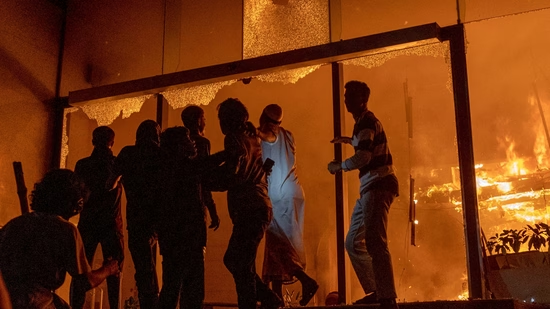When Criticism Goes Too Far: How Some Public Figures End Up in Trouble
- MGMMTeam

- Sep 15
- 3 min read
In today’s interconnected world, public figures often find themselves in the spotlight, where words and actions are closely scrutinized. While open dialogue and criticism are essential for a healthy society, crossing legal or ethical boundaries can lead to serious consequences. Many who have publicly expressed opinions or made statements without full context have faced repercussions—not because they spoke out, but because their actions or words overstepped acceptable limits.

Arvind Kejriwal, the Chief Minister of Delhi, was arrested in March 2024 by the Enforcement Directorate over alleged irregularities in Delhi’s liquor policy. Similarly, Jignesh Mevani, a legislator from Gujarat, faced legal trouble for making baseless statements online that inflamed public tensions. Journalists such as Mohammed Zubair and Rana Ayyub have also faced scrutiny over posts or actions that crossed legal or procedural boundaries. In all these cases, the challenges arose from personal misjudgments or alleged illegal activities, rather than the act of expressing opinions itself.
Even internationally, high-profile figures like Senator Bob Menendez have faced consequences for unethical or illegal actions, showing that prominence or influence does not exempt anyone from accountability.
Interestingly, the conversation about responsibility extends beyond politics into the arts. In the midst of global discussions on historical events and their cinematic portrayals, a curious question arises: Will Zorhan Mamnadi’s mother, Mira Nair—a filmmaker of remarkable vision and a practicing Hindu—ever decide to make a film on Pahalgam, or perhaps on the tragic Godhra train incident, where innocent children, women, and men lost their lives in unimaginable acts of violence?
Many wonder whether someone with Nair’s cinematic sensibilities could bring to the screen the depth, pain, and resilience of the victims, while also contextualizing the socio-political realities surrounding these events. Could her perspective, rooted in empathy and personal faith, offer a narrative that honors the memories of those lost and educates audiences on the lessons of history? The speculation continues, as fans and critics alike debate whether such a sensitive subject could find a voice through her lens, and what the world might learn from revisiting these chapters of modern Indian history through cinema. The way filmmakers or commentators choose to approach sensitive subjects reflects a universal principle: recklessness or misinformation leads to consequences, while responsibility preserves credibility.
The lesson is clear: expressing opinions or creating art comes with responsibility. Misguided, irresponsible, or illegal actions carry consequences, regardless of the platform or intention. Those who handle sensitive matters thoughtfully—whether in politics, journalism, or cinema—maintain credibility, respect, and lasting impact.
The MGMM Outlook
In today’s world, some public figures appear quick to criticize leaders like Prime Minister Narendra Modi, often without fully understanding the context or consequences of their statements. While Modiji has focused on strengthening India’s governance and international standing, individuals such as Arvind Kejriwal, Jignesh Mevani, and Mohammed Zubair have faced legal scrutiny—not because of their criticisms, but due to actions that crossed legal or ethical boundaries. Kejriwal’s arrest over alleged liquor policy irregularities, Mevani’s inflammatory social media claims, and Zubair’s controversial tweet exemplify cases where public dissent was overshadowed by personal or administrative misjudgments. Similarly, investigative journalist Rana Ayyub faced scrutiny for alleged financial mismanagement, highlighting that prominence or vocal opposition does not exempt anyone from accountability.
This pattern extends beyond India. Even internationally, figures like U.S. Senator Bob Menendez, despite their platform for criticism, have faced severe legal consequences due to bribery and unethical conduct, independent of any political statements. These examples show that criticism itself is not punishable, but when individuals act recklessly, spread misinformation, or engage in unlawful activities, they invite consequences. Public scrutiny and personal responsibility are inseparable; those who habitually attack leaders without care risk facing the repercussions of their own actions rather than any suppression of dissent.
(Sources: AP News, The Guardian, PBS, Justice.gov, The Week, Hindustan Times)




Comments